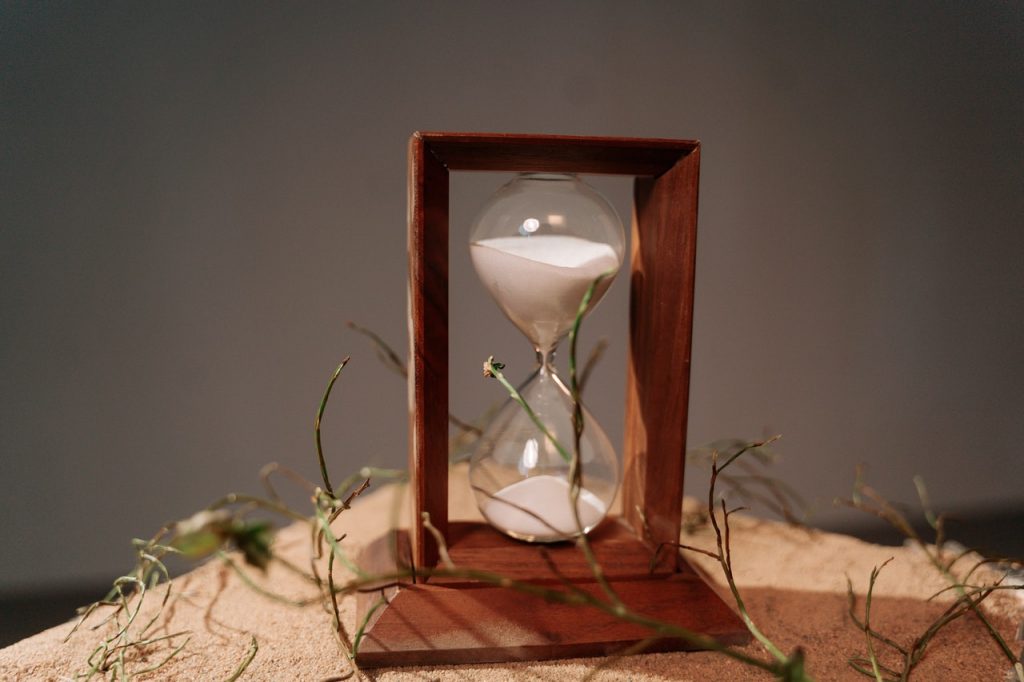Time is Precious

“Dost thou love life? Then do not squander Time; for that’s the Stuff Life is made of.”
― Benjamin Franklin from Poor Richard’s Almanack, 1746
As I've gotten older, I've become much more particular about how I spend my time. While making time for things that help us to recharge is especially important for us HSPs, the question to ask ourselves is whether we're doing these things "too much." Are the things we're spending time on true self-care? Or merely self-soothing? Are we making progress on the embodiment of our vision? Or are we distracting ourselves?
The first step is to take a look at the things we're doing. It could be something we do on a daily or weekly basis - where some part of us feels like it may not be the best use of our time. Really, time is a finite, non-replenishable resource that we are all constrained by. And even time is not guaranteed to anyone.
So, learning how we can reduce "wasting" time is especially important for those of us who are working towards building something or who feel compelled to actualize some kind of "life's work." Because each moment we have is precious and every step we are able to take towards our greater vision really counts.
Reframe what you "have to do" with what you "want to do"
My first tip is to reframe things we feel that we "have to do" - as things that we "get to do." As long as our goals and dreams aren't impotent to begin with, we will always be inspired and excited by the achievement or "thing" that we're working towards. It'll always feel like something that we "get to do" versus something that we "have to do." And of course, it makes sense that we want to fill our lives with these things that we "get to do."
But what often starts happening is that these things that we "get to do" slowly shift into feeling like things that we "have to do" - because we lose sight of WHY we originally wanted them in the first place. For those of us who struggle with this, it's often helpful to create a daily morning routine to practice connecting with your "why" and greater vision more consistently. This can often allow us to shift some of the things that were beginning to start feeling like burdens back to something we are enthused and motivated about.
Stay focused on your greater vision
My second tip is in some ways an extension of the first, in that we need to be able to see the forest through the trees. By focusing on our greater vision, we can get more excited about all the little steps we need to take in order to get us to where we want to go. I believe it's super helpful to break down big goals into smaller, more manageable tasks. Each of these tasks are important and needs to happen in order for us to achieve the thing we want. So by focusing on the end goal which we "get to do" - we can feel more inspired and motivated during those times when we don't really feel like doing anything - when we're in those in between moments of choosing whether to procrastinate or not.
Become aware of where you are spending your time
My third tip is to become aware of where you are spending your time. Take a week and write down everything that you do and how much time you're spending on each thing. Track - how long did you work for? How much time did you spend commuting? How many hours did you watch Netflix for?
It's often easy to not be truly aware of where your time is going each day. So by tracking it, we can easily see if there are any areas where we are spending more time than we wish. And if there are, we can brainstorm and see if there's a way we can change or fix them. Some things we just might not be able to change right away.
For example, if you have to commute an hour to work each way, you might not be able to do anything about it unless you decide to switch jobs or move someplace closer to work. Or maybe you're working a job that doesn't really align with your passions and if you were truly honest with yourself, is more of a "have to do" to pay the bills, rather than something that you're really excited to do each day.
In any case, the point of this exercise is to just become aware of where your time is going and determine whether there are things you should stop doing or work towards the ability to stop doing.
Release the unfulfilling to avoid burnout
My fourth tip is a spin-off of the example in the previous tip about not being at a job that really aligns with your greater vision. The bigger lesson here is that when we're doing things we don't enjoy or feel fulfilled doing, we will always feel like it's a massive time and energy sink. In fact, I believe it's hard to really feel balanced in life when we feel there is something in our lives that we "have to do" that we have to slug our way through.
Let's say you really hate cleaning your house. That might be something worth outsourcing or delegating to someone else because that will allow you to reclaim some of your valuable time back and be able to allocate that towards something else more meaningful to you - something that energizes you, rather than depletes you.
Doing more things that energize us also helps us to avoid burnout. Burnout can be the result of when we do too much stuff that is draining to us. Where we don't stay focused on our greater vision and don't do what we need to do in order to stay energized so that we can take that next step and keep growing and progressing.
Set aside time to recharge
My fifth and final tip is to make sure you set aside time to recharge. This is so important that I think if it's not something that comes naturally for you, then you have to schedule it into your day. What recharges us is different for each person. For some it might be going on a run or a hike. Or spending time with friends. Or maybe it's watching TV or sitting around doing absolutely nothing. Whatever it is, make sure you make time for it. Because when we do, it serves to re-energize us so that we can keep steadily moving towards our goals and dreams.

